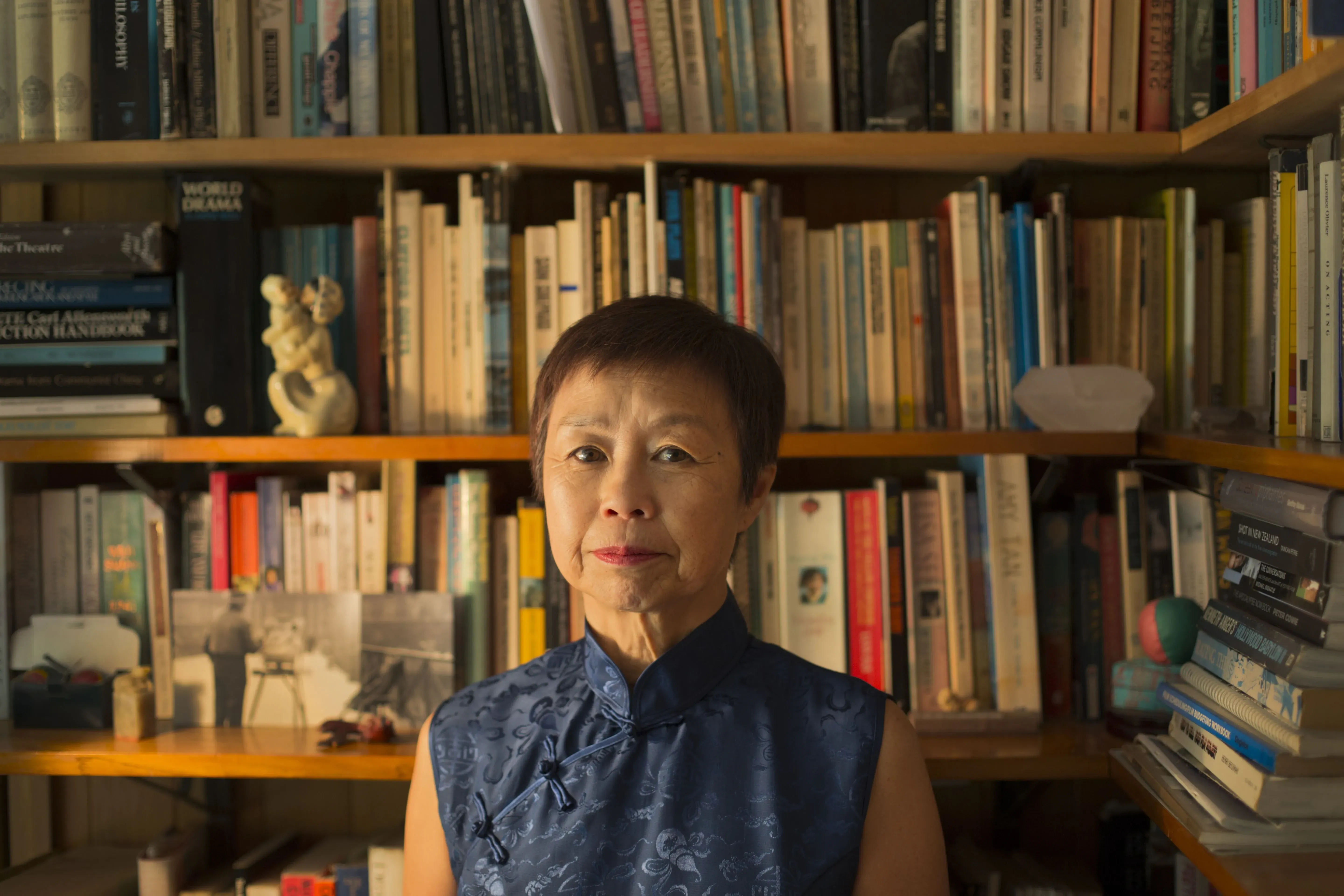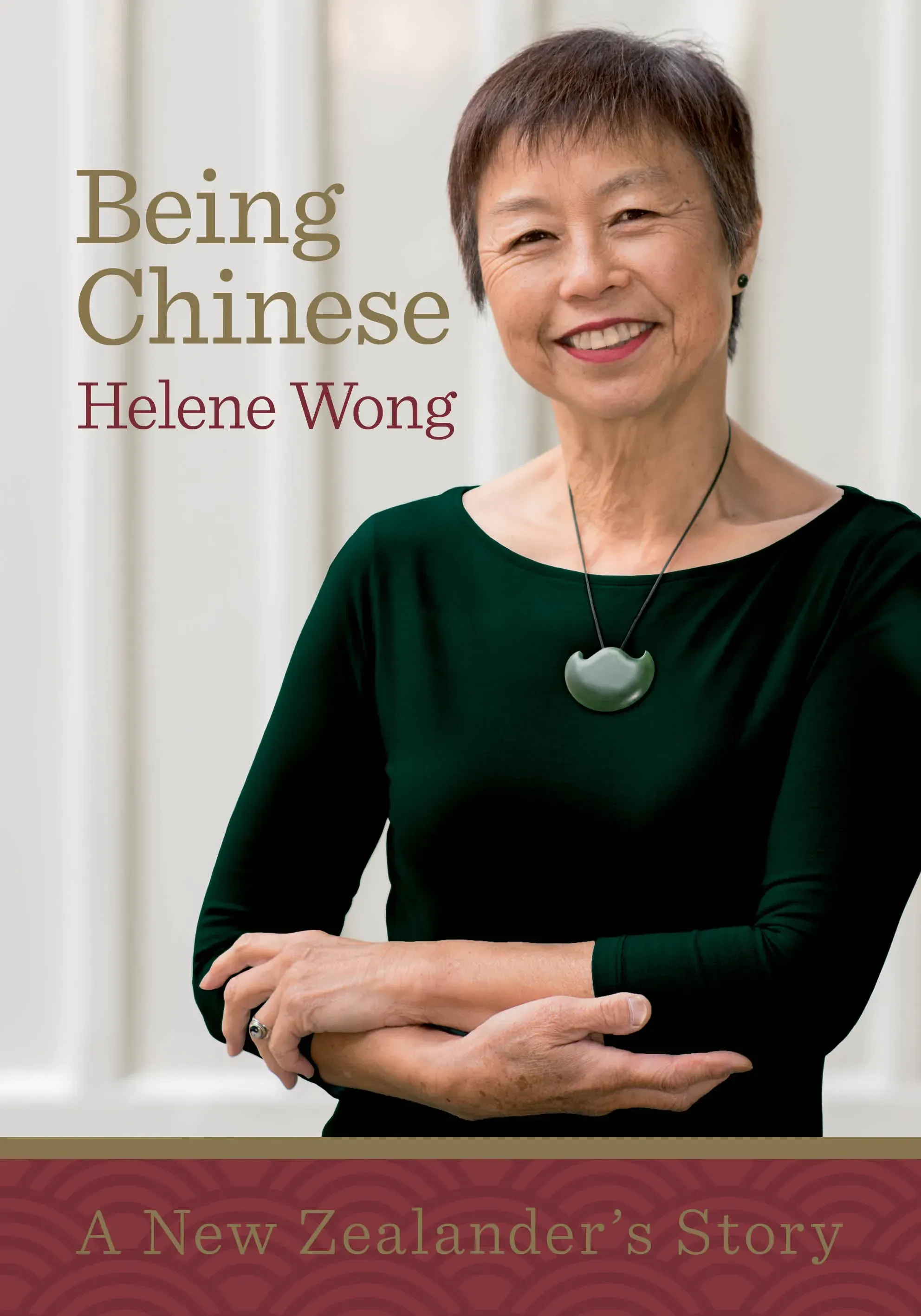Being Herself

When I began my career in the arts, Helene Wong was one of those I looked up to. Long established as an actor, critic and non fiction writer, she could also throw into perspective the history of Chinese NZ artists, with a few pithy sentences. Helene’s memoir, Being Chinese: A New Zealander’s Story is being launched this week, with a session to follow in the upcoming Auckland Writers Festival. It is an intelligent read, packed with anecdotes about her time as adviser to PM Robert Muldoon and her nascent career in the arts, but also with personal insights into her journey of identity as a Chinese New Zealander. I asked Helene a few questions.
Sociologist, public servant, actor, director, writer, arts administrator and reviewer - you've had a very full life. Are you a believer in career planning or are you happy to see where passion takes you?
I grew up in an era of economic stability (50s-60s) where it was assumed you would have a job for life. It was also assumed that if you were female, you worked for a bit then gave it up to become a wife and mother – that was your job for life. Both prospects seemed dismally boring to me. In any case, I didn’t know what my “job” might be – I was very interested in theatre and performing but at that time that wasn’t considered a “real” job. So my career has been unplanned, and yet with hindsight I can see how all the disparate pieces have led me to becoming a writer, and a better prepared one because of what I’ve learned from all of them. Because of that I’m inclined to think there is a “plan” to our lives, but not a conscious one; we find it by recognizing and following those things that make the heart sing.
Is training in science an advantage for a career in the arts?
Scientists might dispute your including sociology as a science! But yes, sociology does teach critical thinking and analysis, and reflection on the behaviour of people, all of which are valuable to an artist. And science is not devoid of creativity. If the act of creation is about the coming together of two apparently different ideas – the eureka moment – then science and art have much in common. Really, though, I think having a broad knowledge and experience is always an advantage for an artist.
You've titled your memoir Being Chinese - a clear reference to Michael King's classic. Has the time now come to assert 'Chinese New Zealander' as both a subculture, and a facet of NZ identity?
The full title is Being Chinese: A New Zealander’s Story, so yes, that’s an assertion that I regard the Chinese New Zealand experience as a justifiable component now of the New Zealand identity that King wrote about. That doesn’t mean I think we should all eat with chopsticks; simply that eating with chopsticks is just as valid a choice as a knife and fork or using your hands, and that it should not derided as “foreign”. But I also think there are lessons to be learned from the Chinese New Zealand experience that raise questions about the values we would like our identity to espouse: how, for example, should we treat each other in this increasingly diverse society?
What kind of response have you had to the book so far?
Very positive – but the book’s only just out, and reviews are still to come!
As an autobiographer, how do you deal with sensitive information?
For information about myself, I have no problem with being frank if it helps to make a point. If it involves someone else, however, I may change a name or not use a name, or decide not to include something if I think it may breach privacy or cause embarrassment.
The Chinese NZ viewpoint has, until now, been poorly represented in NZ literature and media, and even more poorly in established 'mainstream' outlets. What is needed to change it?
More Chinese New Zealand voices being prepared to speak up and express themselves in whatever form they feel most confident in. It doesn’t always have to be expressing the Chinese New Zealand viewpoint – that has the risk of narrowing your options as an artist. On the other hand, that may be the perfect niche for you to find your voice and draw out your talent. I sense a slowly growing interest in the mainstream in the changing face of our country, so now is the time to get cracking. But like any artist, you have to practise, practise, practise in order to become good at what you do and get noticed.
Why is there no targeted funding for Asian arts in this country?
I’ve not been in the world of arts funding for some time, so I don’t know the answer to that specific question, but funding for the arts generally is difficult. There’s never enough to go round. The only way to get funding bodies to consider targeted funding is to ask. But you have to back up the request with a case – what is the extent of the demand? What is the nature of the demand – grants, loans, mentorships, scholarships? On the basis of the answers to those two questions, how much money are we talking about? And what ultimately are the benefits?
Stereotypes - it's happened to you many times. Advice for breaking out?
If asked to audition for a stereotyped character, choose to refuse. Not easy if the fee’s good, and you need the job, but you have to start somewhere. And tell your agent why. If enough of us do it, the message just might get through. Point out to the writers of such roles the shallowness of their writing. They probably don’t even realize they’re doing it. Write your own roles. Ask your agent to send you up for roles that aren’t specifically Chinese. It won’t happen overnight, but you just might find a courageous champion.
What advice would you give to a young Chinese NZ artist starting out?
The same as for any artist – practise your art, learn from constructive feedback, persevere, set high standards for yourself. In the end, you are the best judge of whether you’ve succeeded in creating what you set out to create. More often than not you’ll fall short in your own estimation, and that drives you on. If you’re Chinese, you have a point of difference that you may find inspires you, so go with it. But if you don’t, that’s OK. You’re not obliged to fulfil other people’s expectations. Be yourself.
About Helene Wong
Helene Wong was born in Taihape, New Zealand and grew up in Lower Hutt, near Wellington. After graduating from Victoria University of Wellington in Sociology, she worked in the Public Service, becoming in 1978 social policy adviser to Prime Minister Sir Robert Muldoon, and the first woman to be appointed to his Advisory Group.
Her career then took a different turn to follow her love of theatre, where she worked as an actor and director before moving into film and television in the mid-80s. She was appointed as the first script development executive in the NZ Film Commission, then became a freelance script consultant working on a variety of short and feature-length projects, including Illustrious Energy, Leon Narbey’s acclaimed feature about Chinese goldminers in Otago. Helene herself then wrote and directed documentary for television, notably Footprints of the Dragon, about Chinese in New Zealand, for the series An Immigrant Nation. It was among the ten top-rating documentaries of 1995. The following year, she became a film critic with the NZ Listener and is still writing for them twenty years later.
She has taught classes in scriptwriting, film criticism and cultural identity and the media, and has been a judge for numerous industry awards, and on the jury of the Asia-Pacific Film Festival in Auckland in 1996. In 2000 she was appointed by the government as a member of the Board of the NZ Film Commission, and served for six years.
She is now a full-time writer and occasional actor. Being Chinese: A New Zealander’s Story is her first book.
- Being Chinese: A New Zealander’s Story will be launched in Wellington on 8 May at the New Zealand Portrait Gallery.
- Helene Wong is giving the Michael King Memorial Lecture on 13 May, as part of Auckland Writers Festival 10-15 May 2016.
